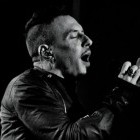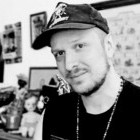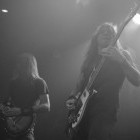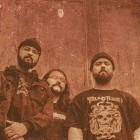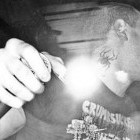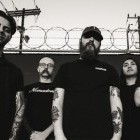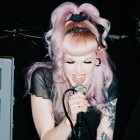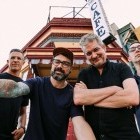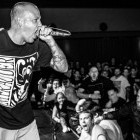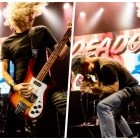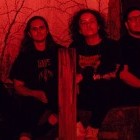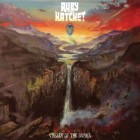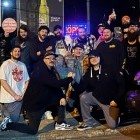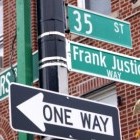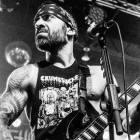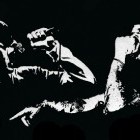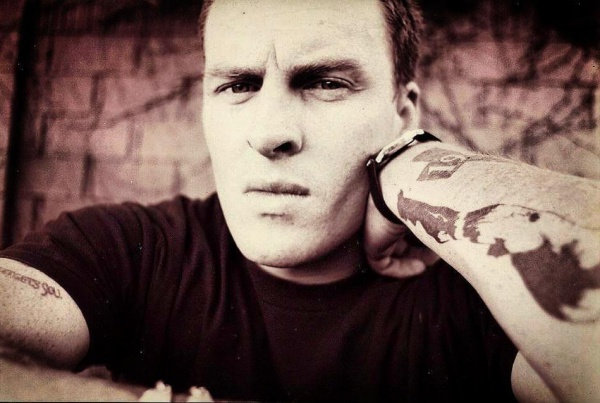
One of the first hardcore records I ever bought was No For An Answer's A Thought Crusade, when it was originally released in 1989. I was 13 and didn't know much about the band, other than I had heard them on some show on Seton Hall University's WSOU radio. Ever since then, I've followed the musical output from No For An Answer's various members. The most prolific member of the group was its vocalist, Dan O'Mahony.
Throughout the years, Dan has kept his discography growing with Carry Nation, 411,God Forgot, John Henry Holiday, Speak 714, Voicebox, and more recently, Done Dying. Like Henry Rollins or Glenn Danzig, Dan's persona—at least to me and some of my hardcore-loving friends—has been that of an intense, almost intimidating figure. Maybe it's his authoritative stage presence, or, perhaps, it's his unflinching lyrical style. Whatever the case, I thought Dan wouldn't be the kind of person that I could sit down and have a laugh with. Well, it turns out that I was wrong.
Dan recently reached out to me about premiering a Done Dying track on the site, and once that dialogue channel was open, I asked him if he would be game for an in-person interview. After some back and forth, we finally settled on a date, and in early June of this year, I sat down with Dan at his home in Orange County, CA for the following interview. I hope whoever reads this enjoys getting to know the singer just as much as I did while we chatted.
So, this will be fun since I don’t know much, if anything, about your life before No For An Answer. Has your family been rooted in Southern California for a long time?
My father’s side of the family is Irish and from Boston. My mother was adopted, so she’s a mystery meat [laughs]. She was raised by a family named McGill, so all of the input from my parental structure is Irish. But as far as my mother’s bloodline, it’s wonderfully mysterious. My father’s father came to the United States in 1935 as a professional wrestler.
That’s wild!
Yeah, it was hit-you-over-the-head-with-a-chair wrestling, not Greco-Roman wrestling [laughs]. But he came over because at that time the market for Irish professional wrestlers was huge. Plus, he was a successful athlete in the Irish military, and was also a very photogenic guy. He did that for about six years. The injuries started racking up, and his alcoholism began to take hold of his body, so he did what they knew how to do which was move to California and open a pub. That’s also where the 9 to 5, bill-paying side of my life comes from. [Dan runs a gastropub in Orange County, CA.]
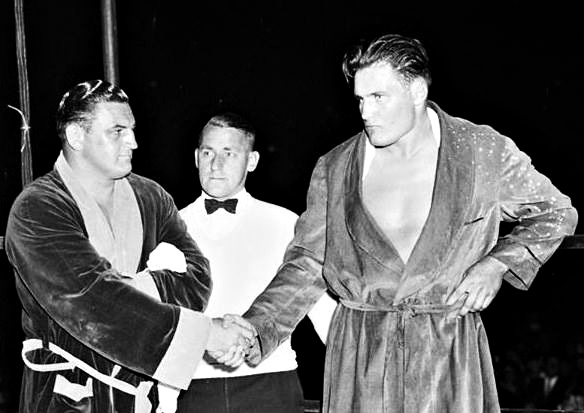
What was your home life like?
My mother and father got divorced when I was really young. My father had weekend custody, so we had to stop by the old O’Mahony’s.
Where was O’Mahony’s?
It was in Santa Monica. It’s an apartment building now. It’s the ugliest building in the neighborhood. It’s a tragedy. It’s been gone since the ‘80s.
SEE ALSO: 2017 interview with Kevin Hernandez (Insted).
What were your parents like when you were a kid?
My father is a lifelong story in recovery. I will it was a once an addict, always an addict kind of thing. His narrative is largely crafted by his own recovery, and his own faith, and what he’s been able to do with his life after a very hard stretch of years when I was very young. My mother was the more political of the two. She was a very strident thinker and a self-determined woman. She put herself through law school in her 40s and went into private practice. She was a hard core leftist, a very witty and eloquent woman.
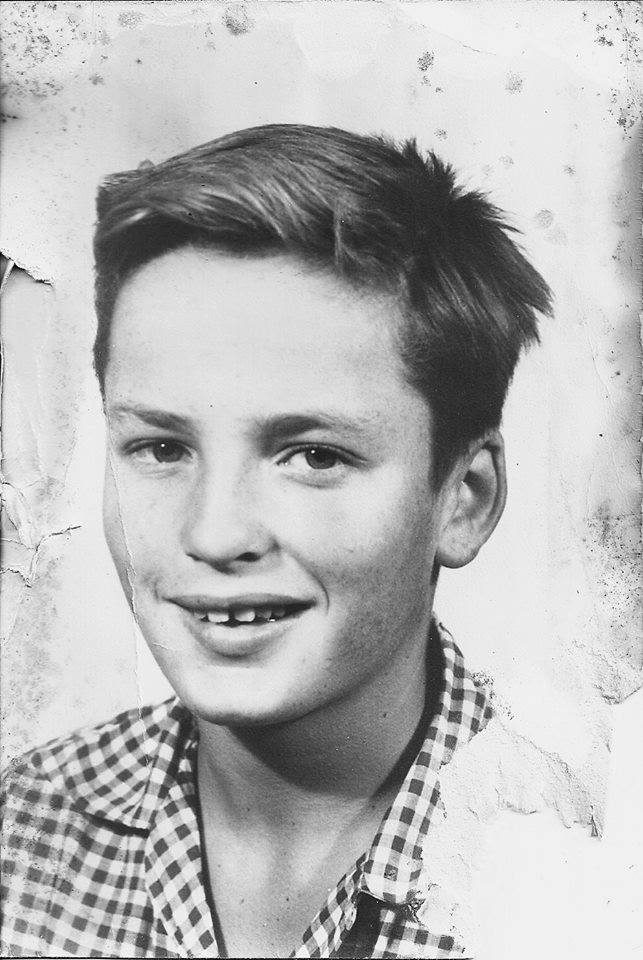
What traits do you think you inherited from them?
The two personality things I get from them would be that the analytical, lefty thing comes from my mother, and the storyteller with a penchant for being a bit of a hot-tempered cowboy bullshit artist definitely comes from my father.
Despite his faults, did you look up to your father?
I’m the spitting image of my father, but I probably looked up to my mother more, but I was influenced by him more. It’s interesting because my mother had me five days a week. But, no. My father paints a very sexy picture. He’s three inches taller than I am. He’s a gifted athlete. He’s the one who put me onto boxing and started my fascination with Muhammad Ali. He was good with women when I was younger. You know, he’s just a charismatic individual.
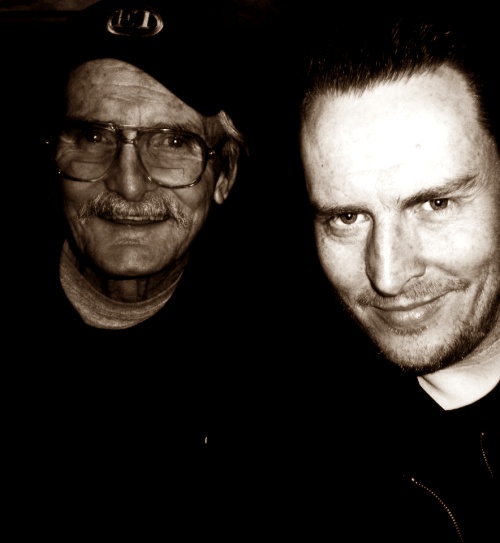
How old are you?
I’m going to be 50 in October [2017].
I’m asking because I wanted to get a sense of what kind of music was out when you were a kid.
If we’re going to go back to the late ‘70s, I remember on the same exact day, I bought a cassette of Foreigner’s “Hot Blooded” and the LP of Never Mind the Bollocks. The first two pieces of music I ever bought for myself, one of them was the Sex Pistols, so that wasn't a bad start.
Where we you living at that point?
I spent my entire youth in either Costa Mesa or Huntington Beach.
SEE ALSO: Vitriolic War Prayers: Born Against Flyer Art
As someone who was born and raised in NYC, you don’t come off like someone who grew up in a beachside community. At least, not in the stereotypical sense of being a laid-back kind of person.
Until they here me speak, most people in Europe don’t even assume I’m an American. I had a girlfriend from Hannover, Germany for 3 1/2 years and the night she met me she walked up to me and started speaking in German [laughs]. I hear all kinds of things. I’ve also heard that I’m 37-years-old and not pushing 50. I’ve heard that I’m too fat or too thin. All kinds of stuff. I think people bring their own mileage to those perceptions.
People have actually said that to your face? That’s so rude.
Well, I work in the bar business, and you speak to drunk people every single night. The hospitality business is interacting with people who don’t have their filters on. So, I’m not saying that I hear these things every single day, but over the course of 20 years, you hear all kinds of things like that.
God, I’m just listening to how in-depth you go and I’m remembering the editing process to a piece I did for Orange Coast Magazine a couple of years ago and what the editing process was like. But you love it, huh?
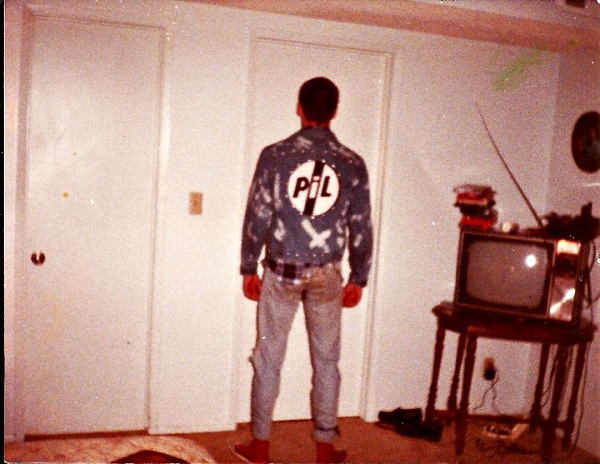
I love it. You see, I like to try and truly get to know someone. I’ve never been straight edge, but I'm a longtime fan of your music, and I wanted to learn more about your family and background.
I’ll give you an interesting observation about straight edge that I’ve always wished to work into an interview, so if you find a place for this to land…
Yes, please go on.
There’s incredible importance that people in hardcore and underground music have placed on straight edge and on this decision regarding chemicals. I think deciding how big a role any addictive chemical is going to play on your life is an important responsibility, and at times I’ve done well with it, and at times I have done poorly with it. But I think straight edge as a movement was something I affiliated with, and identified with, and understood, as productive in my life from 1983 to 1990. That’s seven years, and I’ve been going to hardcore shows for 35 years.
So contextually, people’s obsession with it, and need to identify someone with it, as being a part of it, or not being a part of it, doesn’t make sense to me, purely from a mathematical perspective. My involvement with straight edge doesn’t even represent the majority of the years I’ve been involved with music, let alone the entirety of my life.
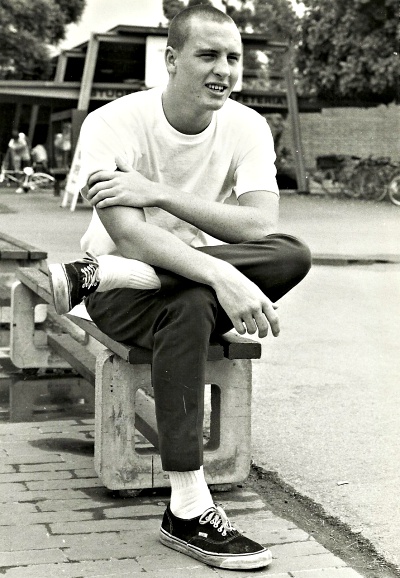
Why do you think so many people are intrigued by the notion of you being, or not being, straight edge?
People always always always love to find a shiny cape. If you could fly your own flag, it’s a greater achievement.
So what happened in 1983?
In ’83, I had addict parents, and I was scared to death of drinking and thought that it ruined lives. But I didn’t necessarily know what straight edge was. When I would go to shows, it was stuff like Social Distortion, MDC, things like this. It was close enough and took care of the visceral need, and the adrenaline attraction, I had to that kind of music. But one night, I was in the Balboa Funzone in Newport and this kid with a skateboard and a shaven head shouted at some other kid who had just broken a bottle. What he shouted to him was, “Fuck you! Minor Threat, Flex Your Head!” He had so much conviction and energy that I had to know what the hell he was talking about. This was obviously before Google, so you had to shyly ask questions to punk rockers.
What I think I came to realize late that summer was that this shaven headed punk kid I just told you about was Pat Longrie from Uniform Choice. He wasn’t in the band yet, but he was probably in this band Squad 51, or maybe Unity existed already by then, but he would go on to become a close friend of mine and a big influence. But I found my way to straight edge because he yelled out at some kid in Balboa Funzone [laughs]. I was 16, maybe 15.
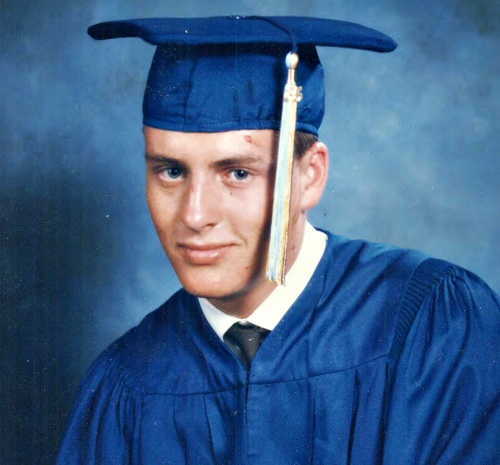
Is that when you started playing in bands?
I started sniffing around the idea of being in a band. I would create fake bands and put them all over my folders. I would get the members, maybe get through 1-2 practices. Nothing that would be worth mentioning. The first band that actually ended up making music and had an identity that cropped up years later was in 1985. That was Carry Nation with Gavin Oglesby.
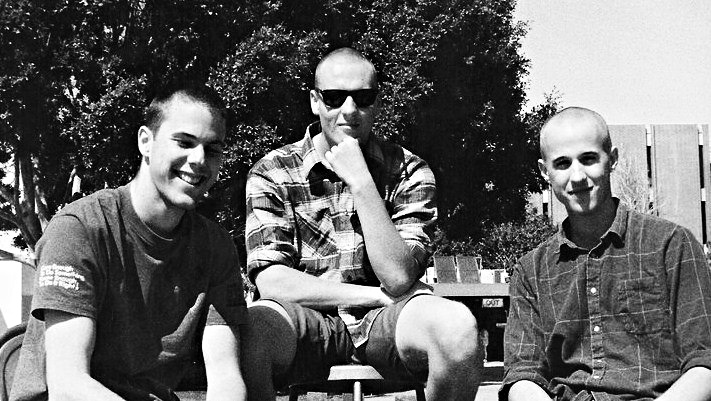
Was becoming a singer/frontman of a hardcore band something that came pretty naturally to you, or was there a shyness that you had to overcome?
It all spun around a very specific night in 1984, at a club called The Flashdance in Anaheim, at a Youth Brigade show. Shawn Stern saw me kind of going berserk in the front of the crowd and then stuck the mic in my face. So I went up and sang a verse and a half, and it was easy. I knew the words, but I also didn’t turn red or look down… I was like [makes an intense face]. The next show I went to was to see the Vandals, and a bunch of different hardcore bands also played on the bill. I was watching all of the different frontmen, and I don’t mean any offense by this, but I thought to myself, “I can do this better.” I didn’t think any of them were focused or even interesting to watch. These were harsh adolescent perspectives, but I knew after that Youth Brigade experience that I was going to figure out a way to sing in front of people for as long as I could.
Since you were already here and going to a ton of punk and hardcore gigs, I wanted to get your take on Southern California’s rep for violence at shows during the mid to late ‘80s.
In my experience, as someone who has spent time on both coasts, the West Coast was considerably more violent. I feel like people are finally recognizing that now, where it’s almost come into vogue to acknowledge that. But to its credit, I never felt that the West Coast hardcore scene was as determined to present itself as violent. I think for the longest time, the scariest figure in hardcore was a young Henry Rollins and all he was doing was screaming about not being able to get the girl [laughs].
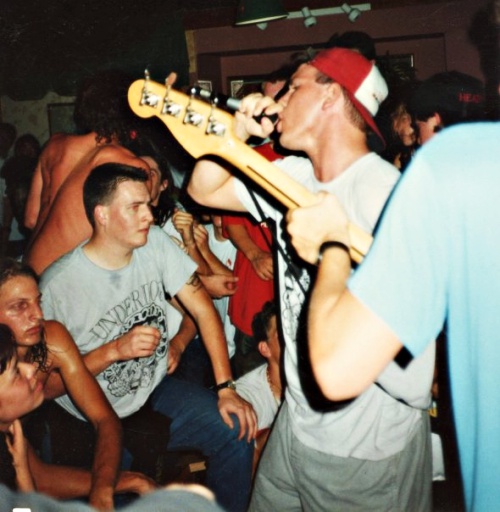
How about Orange County vs. LA? Was there a huge difference when it came to the violence at shows?
OK, I’ll give you the story. LA was decidedly more violent and favored punk rock. In Orange County, it was about a very specific city; Huntington Beach, by the pier, was for some reason more violent. A lot of violence happened between punks and surfers back then. The true violence that I felt went unrecognized and really became an issue.
By ’86, ’87, ’88, ’89, the main venues were in Long Beach and there you were dealing with gangs like LA Death Squad, Sons of Samoa, V13 [Venice 13], all butting heads with each other in your punk venues. That’s a little different from, “Yo! Don’t run your mouth!” at a CB’s matinee. These guys in Long Beach were tossing guns to each other over the metal detectors. So at that point, the stuff you would hear about the East Coast, like so and so who ran with the Cro-Mags, or whatever, carried an 8-ball in a sock. Well, that’s fine, but V13 carry shotguns in their cars.
I’m sure there a lot of people on the East Coast who could break my back with a fart. I’m not trying to do a man to man thing. But what I’m saying is, by and large, as far as what you were exposing yourself to out here by being part of the hardcore scene, this was a much more dangerous place.
There must have been some crazy characters here back then!
There was one guy who wasn’t afraid of anyone, even during the crazy gang stuff, and I see it come up in interview after interview, but credit is due where credit is due. Pat Dubar is a missing a piece. He’s missing a screw, or he’s missing a necessary ingredient for self-preservation. He would walk into a chopper blade. Pat was my boyhood hero.
But he wasn’t looking for trouble.
He wasn’t looking for trouble, but he didn’t have a moment’s hesitancy if it came his way. Pat was enormous and fast. Pat was also fiery and he always seemed to come out on the other side OK. Dubar was not a gangster, but he was a warrior. I would love to see him now.
Was Pat Dubar as outspoken as you were back then?
Dubar’s words aren’t his greatest weapon. He’s a giant, photogenic man with broad shoulders. When he started doing all of that mainstream music [Pat went on to sing in Mind Funk in the ‘90s], they told him he was going to be the next Matt Dillon. To this day, after years of hurting drunks, and boxing, and all of that macho stuff, I think to myself, “I wonder if I can take Dubar yet?” [Laughs] So, yes, he was the standard. At least, from our tribe he was.
SEE ALSO: When Hardcore Bands Went Hard Rock
You see a lot of women at hardcore shows these days, which is the way it should be. Everyone should feel comfortable to go out and see bands. I remember in the late ‘80s, when I started going to shows, that definitely wasn’t the case. How was it out here?
In punk rock in LA, there were a lot of girls cause it was fashionable. At least when I was young it was. In hardcore, and definitely straight edge hardcore shows, it was a boys club in Southern California until Farside came along. Farside played its first show at a church in Irvine around the time I was probably doing Carry Nation. Anyway, they were good-looking kids, and [Michael] Popeye [Vogelsang] could sing, and their music was melodic. I remember all these girls were at the show and I looked over at Gavin Ogelsby and being like, “Dude, we’re fucked.” [Laughs] It was like, these girls weren’t shopping in our aisle.
I’ve always thought that No For An Answer was one of the best hardcore band names of all time. Did you have that in your pocket for years before the band even existed?
Gavin and I had already done Carry Nation together. Carry Nation had a very limited musical chemistry in the foursome that existed at that point, during the first run. Jeff Boetto had just quit Half Off and came to us with a bunch of songs and said that we should start a new band together, and we did. One of the first songs that came together was the No For An Answer song “Just Say No,” and if you read the words to that, it’s actually about group identities. It tries to draw a parallel between the straight edge movement and sort of bovine activity.
It mentions “a pint of fear, a quart of heart” in the lyrics. It’s very much about people alienating one another. So I thought that we could get away with that in a song cause people could read the lyrics, but we need to nix the idea that we were going to call this band Just Say No.
So No For An Answer was almost called Just Say No? That’s terrible!
Yeah, that was floated out there. Just Say No was just not going to work. It didn’t have enough think in it to be a great band name.
SEE ALSO: 2017 interview with Andrew Kline (Strife, World Be Free, WAR Records).
Well, like I said, No For An Answer is a great name for a hardcore band.
I like it, yeah, but it gets confused with No Use For a Name and NoMeansNo too often for me. I’ve had people call me and ask, “So, how much does NoMeansNo need to play this thing?” I’m like, “I don’t know, but you should ask them.”
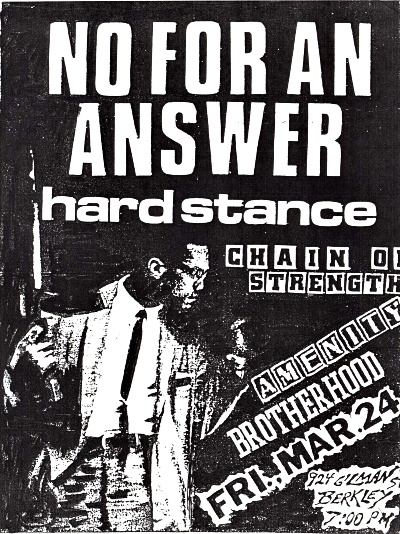
How did Revelation Records come to work with No For An Answer?
Porcell [Youth of Today, Judge, Shelter] reached out to me about No For An Answer. We had known each other already. When Youth of Today was finishing the production and mastering of Break Down the Walls, the core members of the band lived in my bedroom for three and a half months because they needed to be on the West Coast to finish the process. I think the ones that stayed the longest were Richie [Birkenhead], Ray [Cappo], and Porcell. When they came back out with Mike Judge and Sammy [Siegler], they stayed with me again.
Why did they end up staying so long?
They came out and played a few shows and then thought they were going to need to be here for a 2-3 weeks to work on the album and deal with Wishingwell Records stuff, but things got complicated. I also think New Yorkers wanting to get to spend time in a place with palm trees and girls in bikinis was not something that was that surprising [laughs].
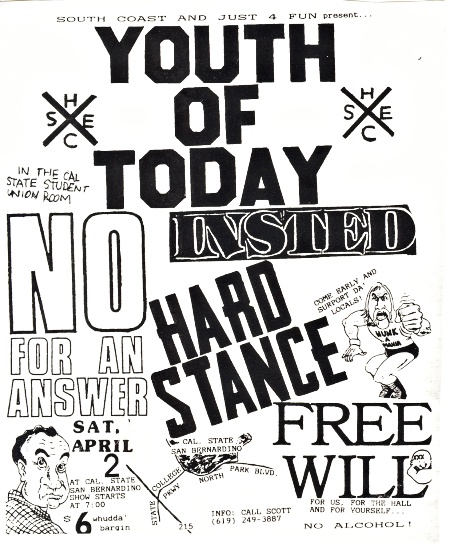
Back to the No For An Answer—Revelation connection…
OK, so yeah, Revelation hadn’t moved out here yet. But like I said, Porcell had known me from Youth of Today staying at my place. Porcell always perceived me to be one of the angrier guys around, and at the time I probablyI was. Not in a tough guy sense. So, when Porcell heard that I was doing a band, he felt like they had to do it.
Well, that makes sense, because the perception I always have had of you is that you were an angry guy. At least, that was before meeting you.
[Laughs] OK, so let’s just go with it this way…I was the angry guy. So when Porcell heard that I was in a band, he was like, “We gotta do it!” I dealt way more with Porcell than I did with [Revelation Records owner, co-founder] Jordan [Cooper] in the beginning, until the band went to the East Coast. I remember it was Jordan who picked us up at the train station and drove us around Connecticut. I remember Jordan played some practical jokes on us. One time he put all of these empty beer cans under the seat of the car and when I got in and had no idea what had happened [laughs]. Basically, he was fucking with my head. It was Porcell’s idea to get No For An Answer on Revelation, but Jordan did the leg work.
Jordan is an intellectual. For all of my apeishness, and being the grandson of a professional wrestler, people like [Maximum Rocknroll founder] Tim Yohannan, [Leading Edge zine founder] Martin Spouse, and [Allied Records founder] John Yates, were bringing a greater depth to the game and offering people greater intellectual challenge, and I always gravitated towards and sort of admired. Also the fact that they also showed me more acceptance since Day One than they showed to most of the rest of the straight edge tribe was extremely empowering to me.
When was the last time No For An Answer played together?
No For An Answer hasn’t been paid to play in years. We came to a conclusion that we weren’t going to play unless there was a cause behind it, and unless it was the You Laugh lineup. This is kind of funny, but everybody who plays in No For An Answer now—if we ever agree to do a show again—has to have sang backups on Screaming for Change [laughs]. I say that because that’s when the nucleus of Orange County hardcore was at its purest.
All that said, I hate doing No For An Answer. We were going to do Rev Fest, but then Gavin got into his own personal politics with someone else who was involved with the festival, but I would rather let him explain that. So we pulled out, but I was glad we did. I think No For An Answer is the most musically feeble thing any of us did. I think it was very genuine in its message. It was very real when it happened. I also understand that it was one of the first 20-25 straight edge records, period. But it’s just not relevant in my life anymore. It’s source material, but I’m not source material, I am now.
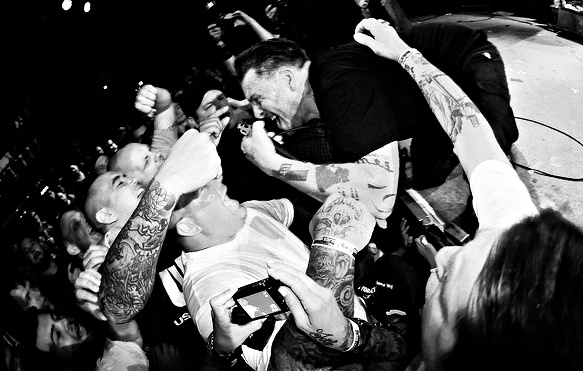
My former bandmate, Andrew Orlando, is a big No For An Answer fan from way back, and he wanted me to ask you about the Hawker Records show you played at CBGB’s that was captured for the Free for All live compilation. He wanted to know what your perception was of the reception the band got from the NYC audience.
From my perception, there was a second NYC being born at that time. There was the whole [Life’s Blood and Born Against guitarist] Adam Nathanson and [Born Against vocalist] Sam McPheeters scene with [NYC venue] ABC No Rio, which was extremely DIY and political. By that time in ’88, ’89, we had left Revelation and those ABC guys were our best friends in NYC. They were smart enough guys that if they felt like you were being honest, you were just someone they disagreed with, they weren’t your enemy. They didn’t need to be friends with the guy from a popular West Coast straight edge band. They were intellectual cohorts of ours. Anyway, they made flyers and protested the Free for All show. The flyers said that Hawker Records wasn’t hardcore.
For people reading this that aren’t familiar, Hawker Records was a subsidiary of Roadrunner Records, a bigger indie label, even back then.
Yes, exactly. I remember the lawyer’s stationary was MCA Records. But yeah, the ABC No Rio guys passed out those flyers in front of the Hawker Records show while we were staying at their apartment [laughs].
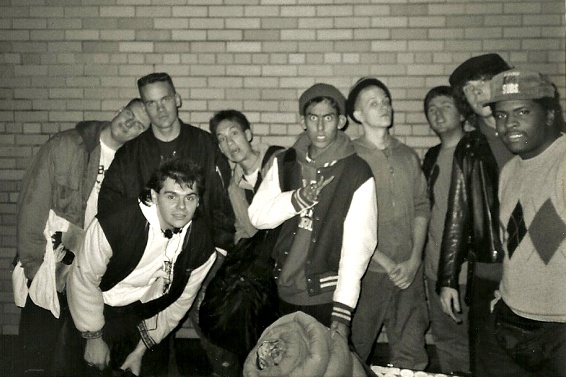
That’s nuts! Had they told you that were planning on doing that?
Oh yeah! Fuck yeah. We all laughed about it. I think we even made fun of each other for it. It was a mutual respect thing. They didn’t think that I was evil, they thought I was wrong.
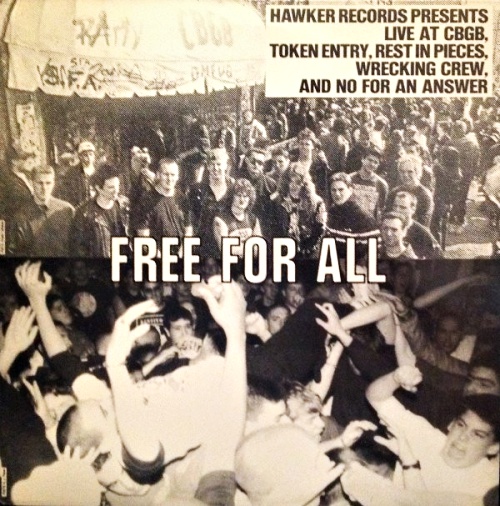
Andrew also wanted me to ask you if you regretted going from Revelation to Hawker. Revelation has proven to have more cache in the hardcore scene all these years later.
No, I don’t regret it. But I agree with him, sure. The last thing I thought about when we were making the A Thought Crusade album was which label was going to have longevity. I was on this mission that if you had something to say, you had to try and get it out to as many people as possible. At the time, Hawker had at least twice the distribution that Rev had back then.
You know, come to think of it, I don’t even know who was behind Hawker Records.
It was a guy named John Bello. He was the face of the label and negotiator, but beyond that, I don’t know. It was basically the NYC Roadrunner Records office. You know, I don’t have any strong emotions about Hawker either way. It was a decision we made at the time to get the record out to as many people as possible. John and I are still in touch on the social networks. He’s very right and I’m very left. But we’re still cordial.
SEE ALSO: 12 Newer Hardcore Bands to Check Out in 2017
I think that Free for All record is the first time I might have heard No For An Answer.
I love that show and I’m happy that the banter between songs is on a live record. That stupid banter gets treated like it’s immortal [laughs]. “Get back, it’s way early,” and all that other crap. All that stuff has followed me for like 27 years now [laughs].
Another thing that is hugely fun that a lot of people didn’t even realize was entirely harmless bullshit was all the crap going back and forth between me and Choke [Jack Kelly of Slapshot] on The Icemen Cometh record was planned. We were sitting backstage and we were like, “We gotta fuck with people…” It was all planned. You should be able to have fun with this music. He’s said a lot of things that are cringeworthy through the years, but Jack Kelly and I have been friends for decades now.
Choke is definitely not afraid to speak his mind.
Yeah, it’s largely an Internet friendship these days, but whenever he’s on the West Coast, we see each other and make fun of each other. He likes to remind me that he’s in far better shape than I am, even though he’s 53 and I’m 49 [laughs]. But at the end of the day, that dude is a punk rocker, whether he knows it or not. He’s a provocateur and a comedian. He’s also a fearless individualist and I gravitate towards that.
After a pause to change batteries in my audio recorder, Dan began talking about some of the other bands he’s played in throughout the years.
I think it’s ungrateful to not respect that people’s fondness for your past work paves way to the present, but for me, personally, 411 was a much more important and challenging band than No For An Answer ever was. But then again, the decision to come on stage to smaller crowds with new music and present tense topics in your late 40s was a more important decision than 411 ever made.
So I feel that the current-day obsession with retro in hardcore, and the willingness to for consumers to pay top dollar for book reports on our childhoods hampers our adulthoods. You don't demand that the blues musician remain a child, so why would we ask that of a hardcore musician? There's no other genre that thinks its just for kids, except pop. But I would rather rank hardcore alongside jazz, blues, and things like that.
Going back a bit, was there a clear decision that you wanted to play something outside of the standard hardcore sound after No For An Answer and Carry Nation?
Carry Nation was arguably the most “gorilla” thing I ever did. I immediately went into something with 411 where people thought it sounded like Sinatra, or something [laughs]. But 411 sold out its very first show. On the second show, Jawbox refused to go on after us after seeing all of the people in 411 t-shirts in the parking lot. The band was received with very open arms, immediately, even though it was such a jagged transition. Goddamn, what a lucky roll of the dice it was for me! It was an incredibly well-timed move, as far as exploring something that we knew wasn’t exactly what people wanted to hear from us.
There was also an embarrassment of riches with 411. [411 drummer] Mario Rubalcaba? Fucking please! [411 guitarist] Kevin Murphy? Who knew? He was the drummer in Headfirst and said, “Yeah, I can play guitar like this…” [Dan makes an Yngwie Malmsteen-like lead guitar sound].
So Kevin was a metal guy.
Yeah, he was a metal guy, but he ended up in Farside, so he was also a versatile guy. He was listening to the Doughboys and Slayer [laughs]. So, to me, No For An Answer was almost a joke compared to 411, except for one thing: the friendships. I didn’t grow up with the guys in 411 like I did with the guys from No For An Answer. To this day, Gavin and I run around scrounging for pieces of what we’ve been doing together our entire lives. I would also hope that most other musicians speak positively of their progression, and the things they’ve done next.
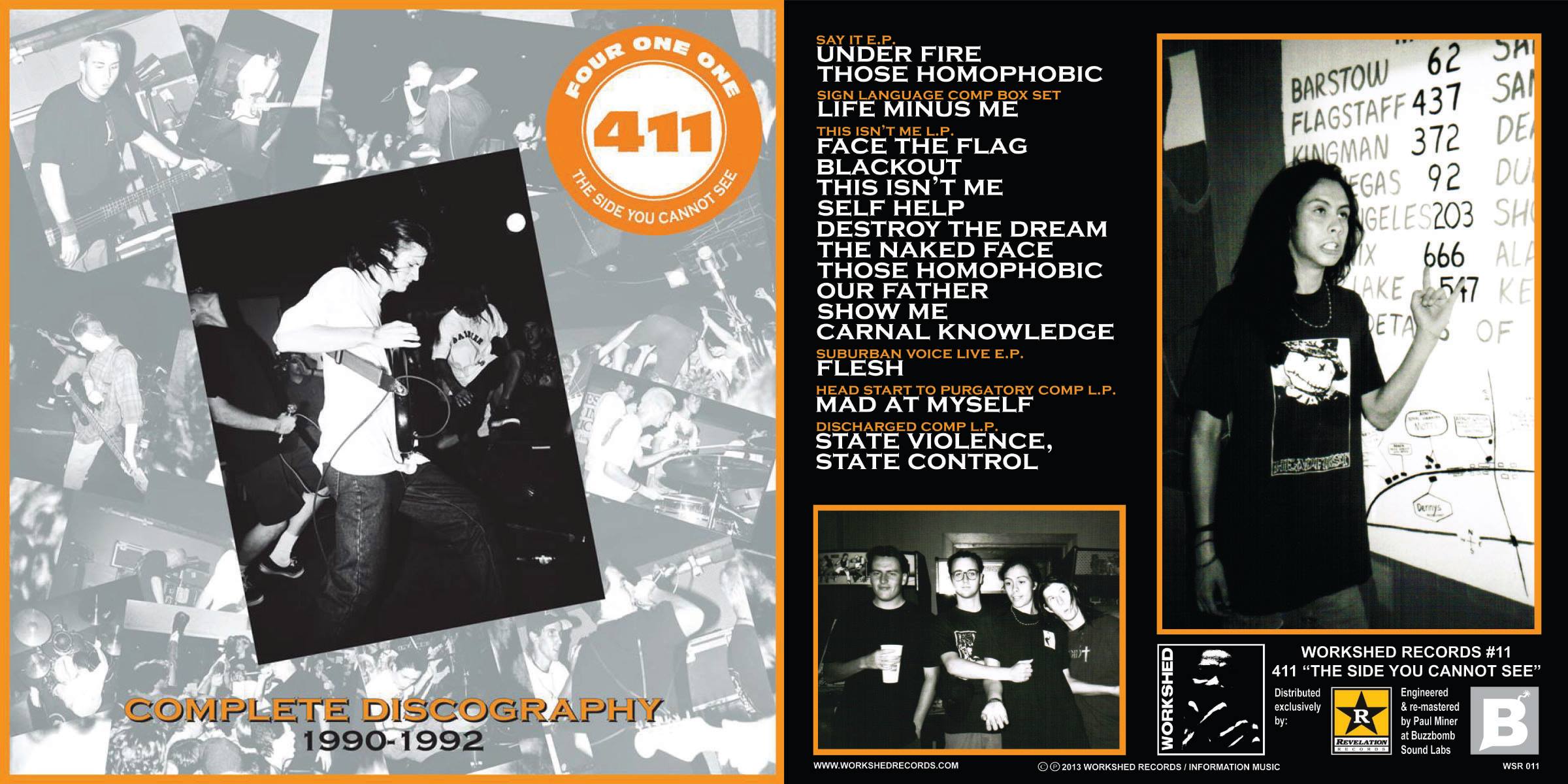
While we’re here, I should ask you about Workshed, the label you’ve done on and off since the late ‘80s. When I think of a one-person label like that, I think of it being a headache since you have to deal with so many different people from the bands.
It wasn’t a headache, but dealing with the bands when suddenly everyone thought that there was money in this was a problem. The standard deal with Workshed was that I would press X numbers of records and you pay the band by giving them 25% of the run. No one was making any money.
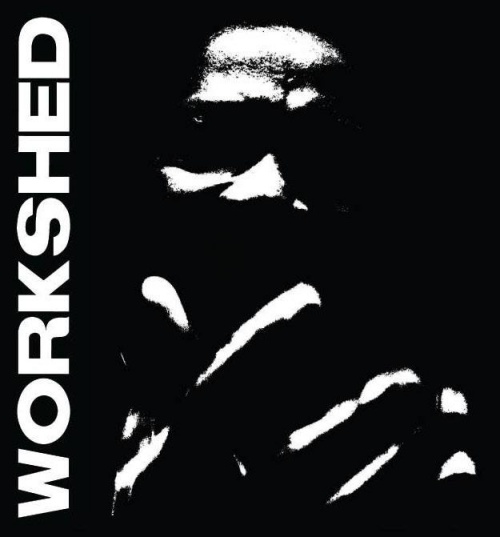
Were you ever a record collector?
No, but I used to have all sorts of stuff. I had test pressings because people used to give them to each other who were in the know. Let’s see, I had Screaming for Change, Break Down the Walls, The Power of Expression. I had test pressings of everything, but I didn’t curate any of that like I should have. I don’t even have a single test pressing of anything I’ve done [laughs]. I might have a Done Dying one, but that’s it.
SEE ALSO: Meet Some of Hardcore's Most Dedicated Record Collectors
Of all the stuff you’ve recorded over the years, what are your most proud of?
The two best songs in terms of how good they sound are both from Done Dying. “Born Without Wings” and “Through You” are both beasts. That’s as much [producer/engineer] Paul Miner as it is the band. The song that impacted me throughout all those years, where people would approach me about it, was definitely “The Naked Face” from 411. The song that was the bravest political statement to make, and still gets discussed the most, has been [411’s] “Those Homophobic.” The most interesting song No For An Answer ever did was probably “Domino Principle.” That was is about child abuse.
That brings us to Done Dying.
Done Dying has attempted to be a full-time band since 2013. [Guitarist] Mike Hartsfield ran out of gas in terms of the original members of the band. Done Dying has the most fun I’ve ever had in band. Replacing Mike has not been easy. We’ve never really fully understood why Mike left, but the one thing we know for sure is that we had fun playing with and wish him nothing but the best. Period. End of story. If Mike gets what he wants from music, then we’re all the better for it. His a talent and his passion for hardcore is incomparable.
More and more, we’ve been embracing Done Dying’s nature as being a middle finger [laughs]. We’re all reunion age refusing to be a reunion band. [Bassist] Chris [Lohman] doesn’t drink, and Mike didn’t drink, but we have no interest in remotely aligning ourselves with the straight edge movement. I hope Done Dying has one more LP left in it. We’re actively trying to write it right now.
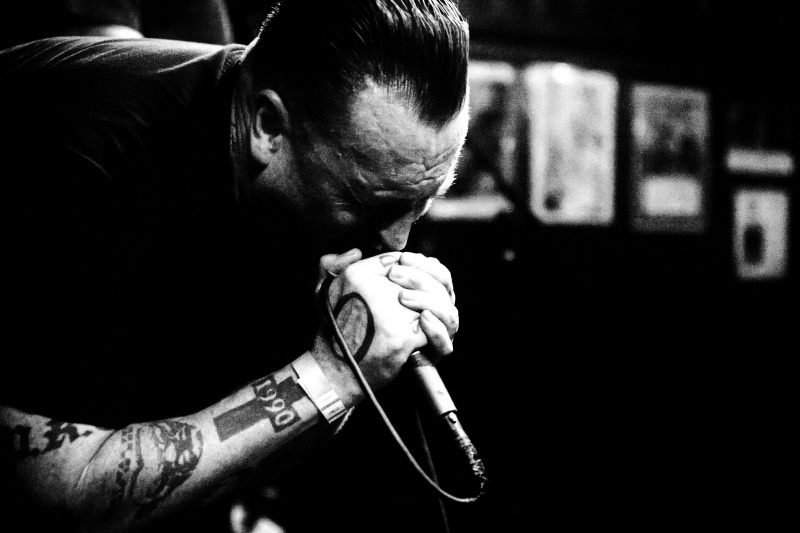
You bring up the reunion thing in hardcore…
When I go see Judge or the Cro-Mags now, there’s part of me that wishes I had done the same band for 30 years so that I could live off my music. But all these decisions are all present tense for me.
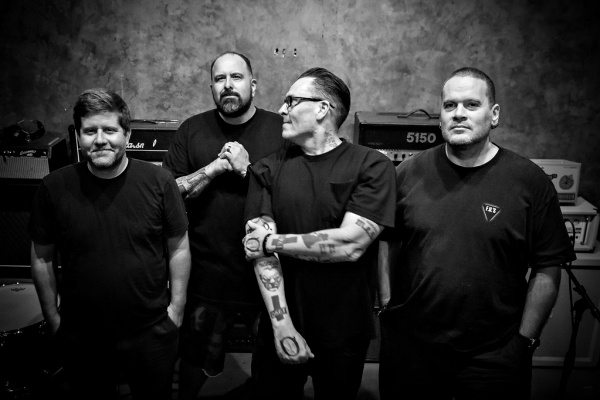
Does it blow your mind that even though it's only a handful, but there are some people who can actually make a living playing hardcore?
Sick of it All? Go do it for a living. Have fun. Slapshot? Go do it for a living and have fun, if you can. 7 Seconds? If you’re having fun and can make a living doing it, that’s awesome. If you haven’t written a song since my ex-wife was born, walk West till your fucking hat floats.
Tell me about your newest band, Shiners Club.
I had known [guitarist] John Coyle since he was very young and playing in a band called Back to Back. I designed their stickers. They were a straight edge garage band. By the time he played in Outspoken, I was living in Northern California and we were completely out of touch. So at the Jon Bunch memorial show, Outspoken and No For An Answer both played within the same hour, so we ended up sitting on the dance floor and making man jokes with each other [laughs]. His mindset and where he was as a person I found really appealing. He then turned up at a Done Dying show we did with Ignite at the Constellation Room and he was very supportive.
So, as he started doing LastLight and a bunch of other things, I just sent him an Instagram message one day to pick his brain and see where he was at. It wasn’t anything about playing together, but more of a “get a hold of me, we should talk sometime.” Well, he got back to me within an hour or so, and the almost immediate out of it was him saying, “I can’t believe we haven’t done anything musically together yet.” I told him that I thought he was more of a singer, and he told me that he sang for Outspoken but that he was truly a guitarist.
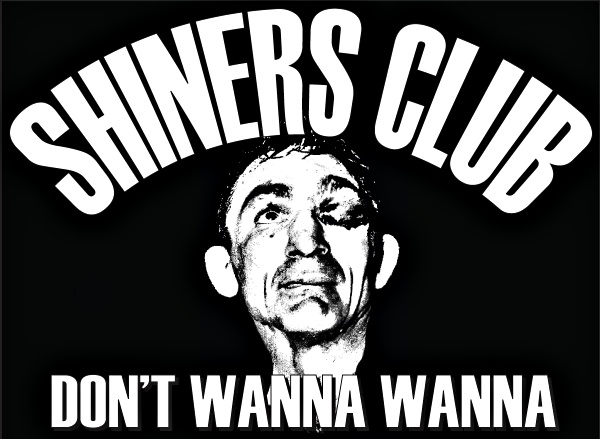
Yeah, John is a killer guitarist.
I told John that I had guys that I had wanted to play with for a long time. I wanted to play with Colin Buis for years. When No For An Answer toured with Mean Season in Europe, they were a one-man band to me. I would just watch Colin playing bass cause he was a freak.
And then Doug McKinnon who has been in Slapshot and the Vandals, and everything else, he played the drums on the Speak 714 album, and he also stood in for Kevin [Panter] when he broke his hand. Ever since Doug did that stint in Done Dying, I had wished I could do something else with him. From the very first practice, those guys caught fire. I just kinda sat back and watched it and thought, “Oh, dear!” Shiners Club is a better band that I am a singer. But for me that’s great.
SEE ALSO: 2017 interview with John Coyle (Outspoken, LastLight, Kill the Messenger, Yuckmouth).
Since no one has heard any of the music yet, how would you describe what Shiners Club sounds like?
Black Flag. Really aggressive blues. It’s not going to be overproduced. You would be full of shit if you said you couldn’t spot [Black Flag guitarist] Greg Ginn in there, but you would also be full of shit if you said you couldn’t spot [blues legends] Albert King or John Lee Hooker. There are hardcore vocals, but there’s more stretched notes and attempts to lose control a bit. I will always be a vocalist that works within a very specific box. That’s just the way my toolbox is limited, but I was always so envious of guys who could just lose it, like Sam McPheeters. I’m trying to bring some of that texture to Shiners Club.
The last thing I want to bring up, we kind of touched upon a little earlier in this conversation, which is your reputation of being one the “angry guys” of hardcore. To be blunt, my impression of you was of someone who always intense and didn’t really have a good sense of humor about himself.
I think I’m fucking hilarious [laughs]. I have personal situations that to this day, my own intensity and my own inability to categorize things correctly, or to empathize, I still do very self-destructive things, socially. It’s extremely painful for me. That was a bigger part of my youth and my character that has stuck with people. I’d be useless without my anger, but I think I’m a better adjusted man now.
Angry? Yes. No sense of humor? That’s not true. Go to one Done Dying show and they’d shut their yaps on that front. I think some people would rather have the intense version of me. They want a drill sergeant, not a lounge act [laughs].
I’m picturing a bar in my mind and there would be 10 people that tell you that I’m amazing, and 5 who think I'm the Antichrist. I hope that ratio stays about the same for the rest of my life.
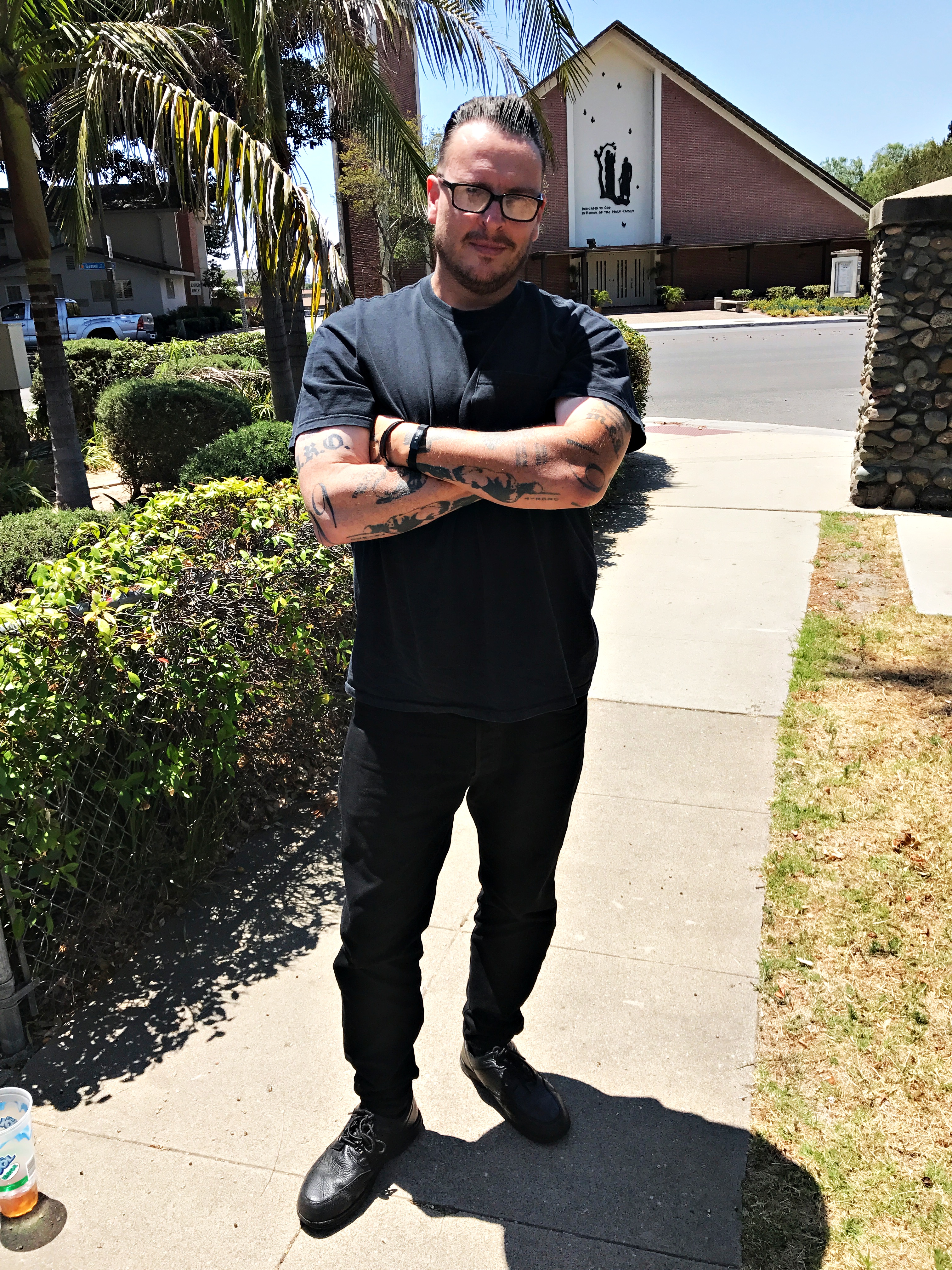
***
Follow Done Dying on Facebook and Shiners Club on Instagram.
Tagged: 411 band, carry nation, dan o'mahony, done dying, no for an answer, shiners club, speak 714

